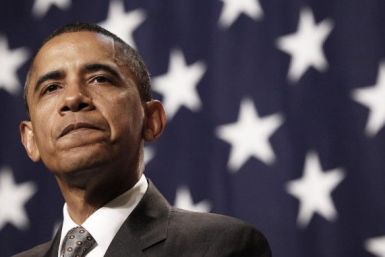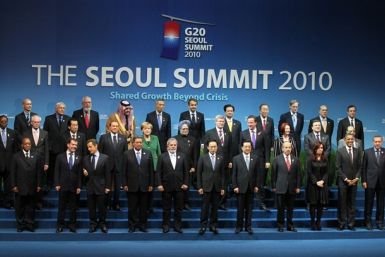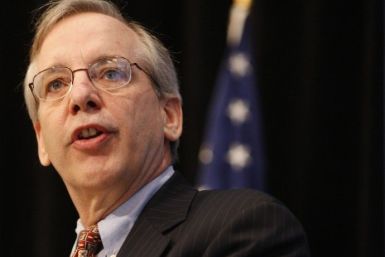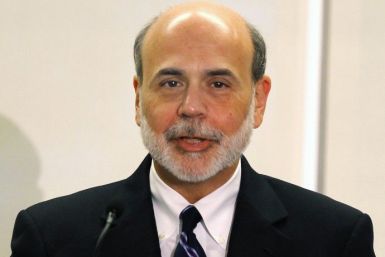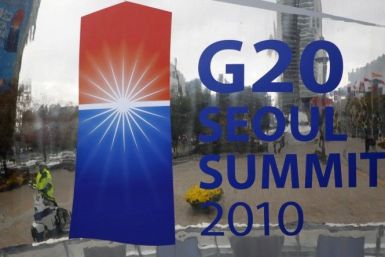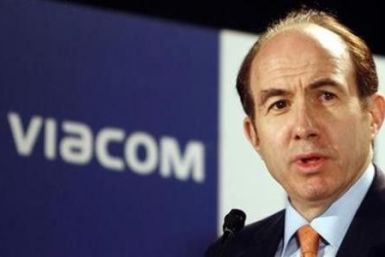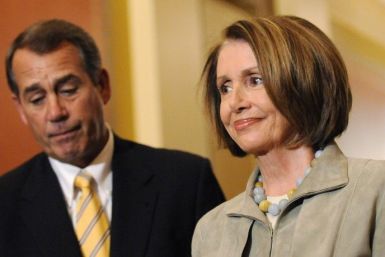U.S. economic policy is stuck in the pre-1970s era, which had higher population growth. Before 2008, this outdated policy caused boom-and-bust cycles. Now, it is failing to boost economic growth and possibly endangering the world financial system.
Dumb money is beginning to pour into gold. However, gold fever has not yet taken over the public imagination and there are still many potential buyers on the sidelines. The rally is therefore likely to continue.
On Friday at the G20 summit, finance ministers of France, Germany, Italy, Spain, and Britain issued a joint statement saying the holders of any existing euro zone government debt are safe from regulatory changes that would force them to take on additional losses.
Home foreclosures in the U.S. in October fell by 9 percent primarily because some major banks temporarily froze foreclosure proceedings and delayed sales of foreclosed properties nationwide after being criticized for shoddy paperwork, according to real estate data company RealtyTrac.
Leaders at the G20 spent as much time promoting the process itself as the real accomplishments of the summit. Most said that while there was little in the way of concrete rules, there were a number of steps in the right direction.
The much anticipated, talked about, and at times criticized program of the second round of quantitative easing has begun.
Stocks, through quantitative easing, are pushed higher and into bubble territory. In a few years, the market could crash and fall as much as 50 percent, said Jeremy Grantham of GMO LLC.
The global currency war will likely dominate discussions at the G20 Seoul summit. Other issues on the agenda include global financial regulation, development gaps, and dealing with disruptive capital inflow and outflows.
MetLife Inc., the largest life insurer in the U.S., said it plans to discontinue the sale of new Long-Term Care Insurance (LTCI) coverage next year, citing ongoing financial challenges facing the LTCI industry.
Research in Motion Inc's answer to Apple's iPad is expected to be priced a lot lower than the iPad, but Samsung's Galaxy is priced around the same level and promises a whole new experience.
Media giant Viacom reported better-than-expected quarterly profit as it recorded strong gains in advertising, affiliate and television license fees.
The arrest of Russian spies in the US and the ensuing spy-swap was the result of the betrayal of a Russian intelligence officer, a Moscow newspaper reported on Thursday. Kommersant, the paper, claimed that Col. Shcherbakov, who worked for Russia's Foreign Intelligence Service (SVR), blew the cover of his unit.
Following its annual tradition of celebrating the magical season of Christmas, Cincinnati-based Macy's Inc. on Tuesday announced a series of special events and displays for children and adults alike.
A big point of contention at the G20 Business Summit is how to reconcile the need for growth with the need to address environmental problems.
Experts at PIMCO, which has the world's largest bond fund, said inflation is a medium and long term concern and investors should therefore consider purchasing more inflation-sensitive assets.
Two things are always present at G20 summits: the gathering of the most powerful international elites and the gathering of common citizens and workers to protests against them.
To the dismay of policy makers, the newly-printed dollars of the Federal Reserve has not found its way to the real U.S. economy in the form of loans to small businesses and consumers. A key question is if they are sitting in the U.S. financial system or flowing to emerging market economies.
New York City could learn a thing or two from the cleaniness and efficiency of the underground metro system of Seoul, South Korea,
Peripheral Europe faces waning public demand because of austerity measures, conditions that make exports difficult, and a banking sector that has not recovered well from the financial crisis. All this comes at a time when recovery is still fragile and the risks of a double-dip recession are real.
The United States, which has not yet been punished by bond vigilantes for its enormous public debt, is keeping fiscal stimulus policies intact for the short-term. While many economists support this decision, the key question is if it will be able to enact necessary fiscal austerity measures in the future.
Behind the scenes, China and the U.S., two major combatants, may already have already struck an agreement, said Douglas Borthwick, head trader of Connecticut-based Faros Trading.
Xi Jinping will likely be China's next President. Given his background, he is likely to favor coastal regions and continue China's export-driven economic model, and therefore unlikely to pursue structural reforms like distributing income to inner regions or taking dramatic steps to cultivate domestic consumption.










